
We kindly inform you that, as long as the subject affiliation of our 300.000+ articles is in progress, you might get unsufficient or no results on your third level or second level search. In this case, please broaden your search criteria.

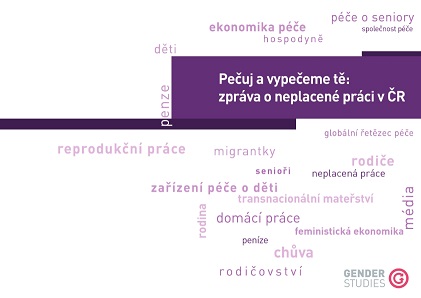
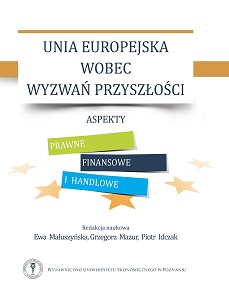
Niniejsze opracowanie ma na celu ukazanie problemów prawno-podatkowych w sytuacji dziedziczenia spadku położonego za granicą. Kwestia transgranicznego dziedziczenia spadków staje się coraz większym problemem dla obywateli Unii Europejskiej.
More...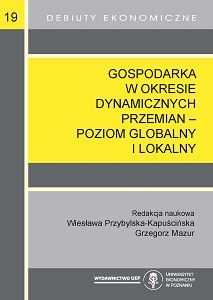
Celem artykułu jest przegląd argumentów za wejściem i przeciw wejściu Polski do strefy euro i ustosunkowanie się do tych poglądów. Układ artykułu podporządkowano celowi opracowania. Stąd w pierwszej kolejności nawiązano do teorii optymalnego obszaru walutowego i jej ewolucji. W odniesieniu do założeń, jakie przyjął R.A. Mundell, opisano genezę, a także zarys działania strefy euro. Wskazano warunki konieczne i dostateczne wzmiankowanego wejścia, a następnie poglądy wybranych ekonomistów dotyczące tego zagadnienia. Artykuł kończą autorskie przemyślenia dotyczące poruszanej problematyki.
More...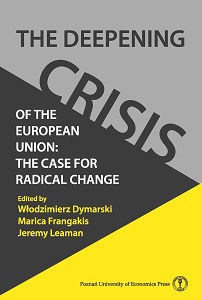
In this chapter the focus is on the specific influence of the crisis on the countries of Central and Eastern Europe. Author reveals significant contrasts between the macroeconomic performance of CEE economies since 2007, with severe, two-digit recessions in the Baltic states and uninterrupted growth in Poland, underscoring the relative vulnerability of the smaller economies with its stronger domestic demand factors. However, even in those economies that show some signs of recovery, chronic levels of youth unemployment indicate serious challenges for both domestic and European policy-makers.
More...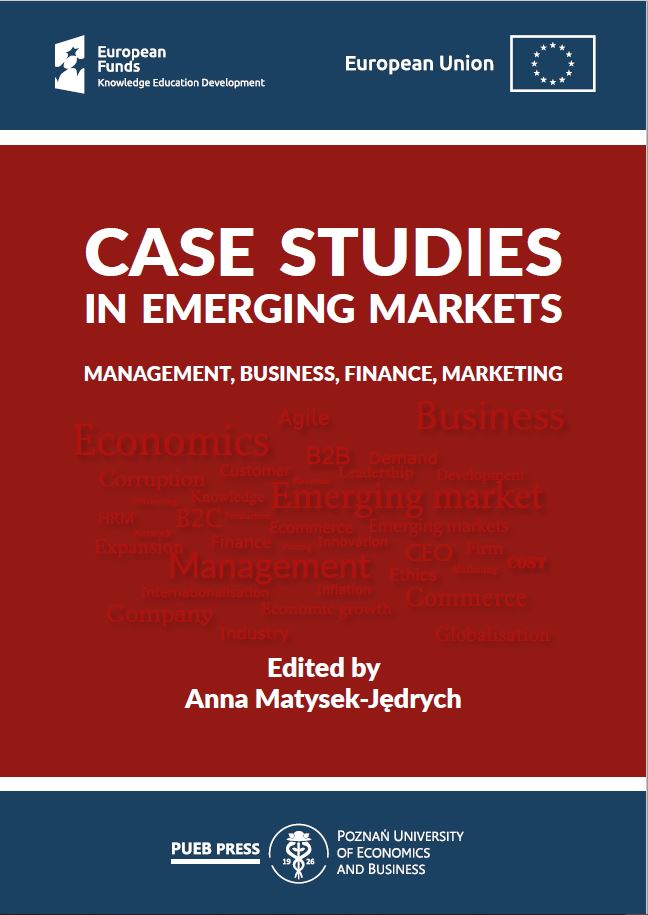
This paper presents Polish company ALVO MEDICAL (the producer and provider of solutions for hospitals and medical units, encompassing the equipment of operating theatres, surgical preparation rooms, treatment rooms, and many other hospital areas) and its strategies of entering the selected Asian markets.
More...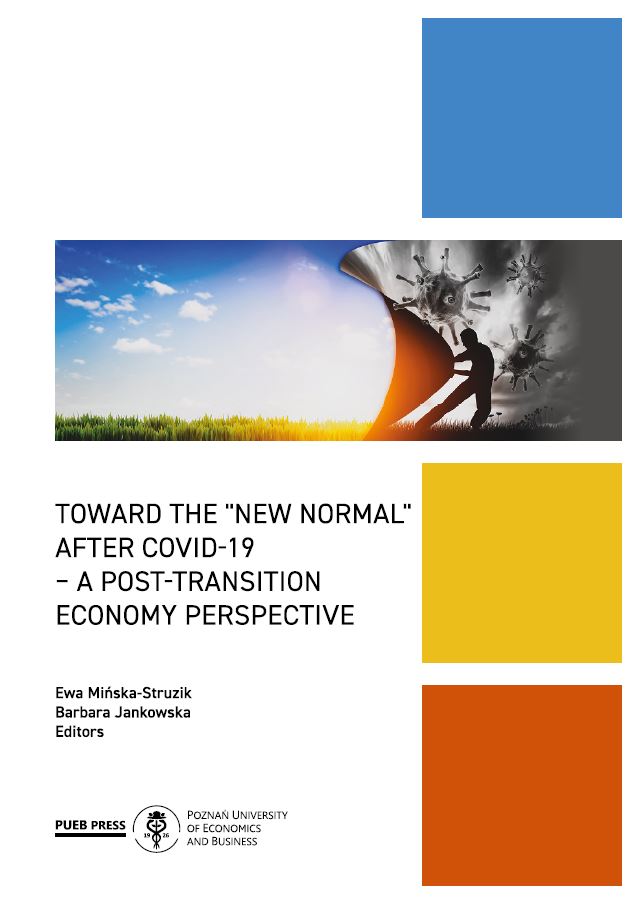
Purpose: The authors aim to briefly present the adoption of Industry 4.0 technologies among Polish companies in the realm of the VUCA world. These solutions may work as measures that increase the resilience of companies against the Covid-19 crisis and support the recovery in “the new normal” reality. Design/methodology/approach: The paper combines literature studies with an empirical investigation in the form of computer-assisted telephone interviews conducted among 400 Polish manufacturing companies. Findings: Polish industrial manufacturing firms lag in implementing I4.0 technologies compared to their Western European counterparts. Research limitations/implications: The empirical part of the study was conducted among Polish companies. Similar studies among firms from other CEE countries will be necessary to conclude about this part of the world’s readiness to adopt 4.0 technologies. Practical implications: The pandemic era and increasing I4.0 adoption pose particular tasks for companies. They should revise their contractual arrangements with IT service providers and focus on data privacy and security topics, but also industry-specific regulations. Triggered by the Covid-19 crisis, these actions may contribute to developing companies’ comprehensive digital strategy in the “new normal” reality. Originality and value: The chapter contributes to the discussion on the readiness of companies and economies to adopt the Industry 4.0 technologies. It also provides the level of the adoption of these solutions in the context of a post-transition economy.
More...
Purpose: The aim of the chapter is to present the competence patterns before and during the economic crisis and to determine the importance of individual competences for doing business in a turbulent environment. In many sectors of the economy, global changes triggered by Covid-19 called into question the use of existing sets of competences needed to run businesses effectively in supply chains. The continuous improvement of supply chains – or lean and agile management – will no longer work in current conditions. Faced with an increasingly unstable economy triggered by a global pandemic, many economists ask whether the existing competence patterns in companies or supply chains remain appropriate and proper for the current economic situation. Design/methodology/approach: In 2017, a survey was conducted among selected experts in the pharmaceutical sector. The same questionnaire distributed in September 2020, during the Covid-19 pandemic. The experts were highly qualified managers employed in transnational companies. The 10 respondents were asked to indicate selected competencies. The choice of the pharmaceutical sector was motivated primarily by its specific characteristics as it is particularly important not only economically but also socially, by providing life-saving medicines. Findings: Technical competences are becoming the necessary ones. This is due to the need for self-sufficiency in lockdown situations, when it is difficult to find external employees and the possibility of outsourcing skills. In the case of managerial competence, it is clear that creativity and entrepreneurial thinking have increased in importance. When analyzing social competences, what comes to the fore is diversity of intercultural skills: foreign language skills, the ability to compromise, the ability to transfer knowledge, and finally, the ability to adapt to change. Originality and value: This chapter answer what competences seem necessary for future managers in the pharmaceutical industry in a turbulent environment, which is crucial for research and teaching centers who seek to educate future managers at the highest level of specific competences and skills. Due to the dynamic development of the industry, the text identifies the needs in the areas of technical, managerial, and social skills.
More...
Purpose: The aim of the chapter is to compare the declarations of local and international companies regarding the maintenance of sustainable development initiatives during acrisis. Design/methodology/approach: The article presents the results of a survey conducted in September 2020 on a sample of 500 enterprises located in Poland. Respondents were asked to declare if they will maintain or abandon sustainable development initiatives in a crisis situation. The examples presented a pandemic similar to the one caused by Covid-19, an economic crisis, or a significant decrease in company revenues. Findings: The research showed that the largest group of companies in acrisis situation will completely abandon their initiatives in the field of sustainable development. Another group will give up those initiatives that generate the highest cost. There are some small differences in responses of local and international companies. Companies with foreign entities in the ownership structure seems less likely to give up all initiatives in the field of sustainable development. International companies more often than local companies declare that they do not know which initiatives they will abandon and which will they keep. Research limitations/implications: Factors other than international involvement (e.g. company size, strategic approach to sustainable development) may have a decisive impact on decisions regarding the maintenance of sustainable development initiatives in acrisis. Originality and value: The chapter illustrates the approach to sustainable development by companies classified into various categories: local and international.
More...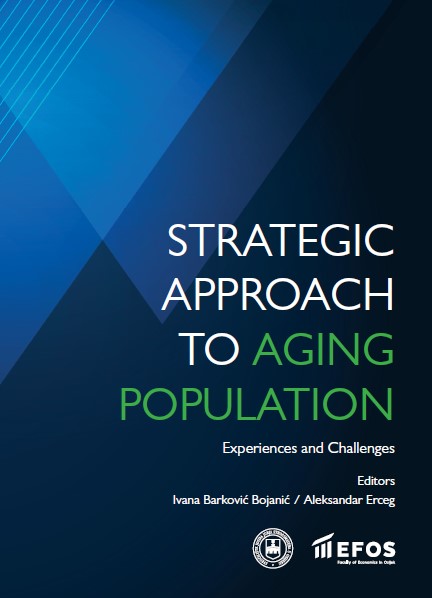
The paper examines the state policy of the Russian Federation and Central Asian countries in the field of supporting the aging and retired population, analyzes the dependency ratio in the Russian Federation and Central Asian countries, and provides predictions referring to changes in the demographic structure of the labor force in the context of labor migration. The paper includes prediction indicators of the dynamics of labor migration processes of the population in the retirement age from Central Asian countries, considering the current trends of demographic change, and explores the impact of labor migration processes of persons of retirement age on the economic growth in the context of economic and social globalization.
More...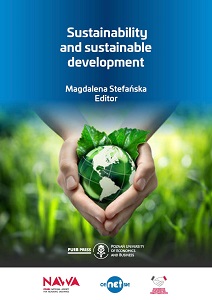
The aim of this chapter is to describe various determinants of sustainable development in the contemporary world, including those most important, such as globalisation, climate change, poverty versus unlimited consumption as well as limited exhausted access to resources—with regard to the goals of sustainable development. The other objective is to give the reader essential resources covering the topic from various viewpoints and a starting point for discussions about sustainability.
More...
The aim of the chapter is to explain how to incorporate Sustainable Development Goals (SDGs) into corporate strategy in order to increase the competitive advantage of a company in thelong-run. The questions how to set a mission, vision and objectives to prepare annual reports in the field of sustainability will be discussed. Furthermore, motives as to why companies have to consider local and global perspective when setting SD objectives and the problem of conflicts in SD goals will be determined.
More...
The interest in finding the genesis of psychosocial phenomena is manifested by various specialists to understand the phenomena involved in the behavior and culture of social groups. Permanent individual-society cohabitation, the permanent flow of information, negotiations, conflicts, tensions or processes of accommodation and cooperation between the individual and society form the specific field of interest of social representations. The effects of globalization and the development of media technology are also felt in the evolution of social psychology. Facilitating personal and institutional contacts, linguistic uniformity through communication in English, the tendency to align with professional training and evaluation according to similar criteria have significantly reduced the geographical differences in the present of our existence. In this context, it could happen that the representations of different social objects studied during sixty years are unique. People reconstruct the social object, re-evaluate it and, thus, the object exists only through the meaning offered by individuals.
More...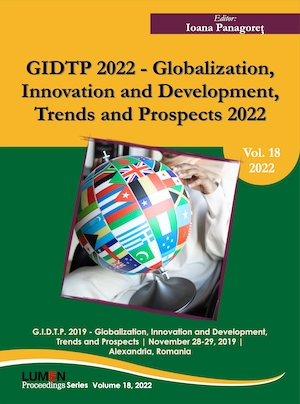
Currently, one of the main factors that shows us a picture of Europe's decline is that of demographic change. This process of decline of the West is marked by more than five decades of several indicators and evolutions that show us that although the time of Western civilization is beginning to run out, a new one appears, namely that of the East. This process of decline in which there is an extreme and unprecedented form of capitalism appears more pronounced in Europe compared to the United States and is characterized by: corruption, alienation of peoples from their roots, religion, history, low birth rates, massive flows of migrants and refugees, the totalitarian tendency of governments. Although the signs of decline are numerous, in this paper we will analyze certain demographic developments observed mainly in Europe and which we consider from several points of view dangerous. In addition to these developments, which we consider quite dangerous, globalization is the most important. The paper is structured in four parts, in the first part being presented the basic trends and variations from the population's perspective. In the second and third part are presented the main causes and effects of these variations of the populations and in the fourth part the conclusions of this study.Most of the interpretive analysis of this unwanted stagnation process is based on demographic erosion, population aging, low middle class rates, the invasion of migrants and refugees that change the cultures of the host nations.
More...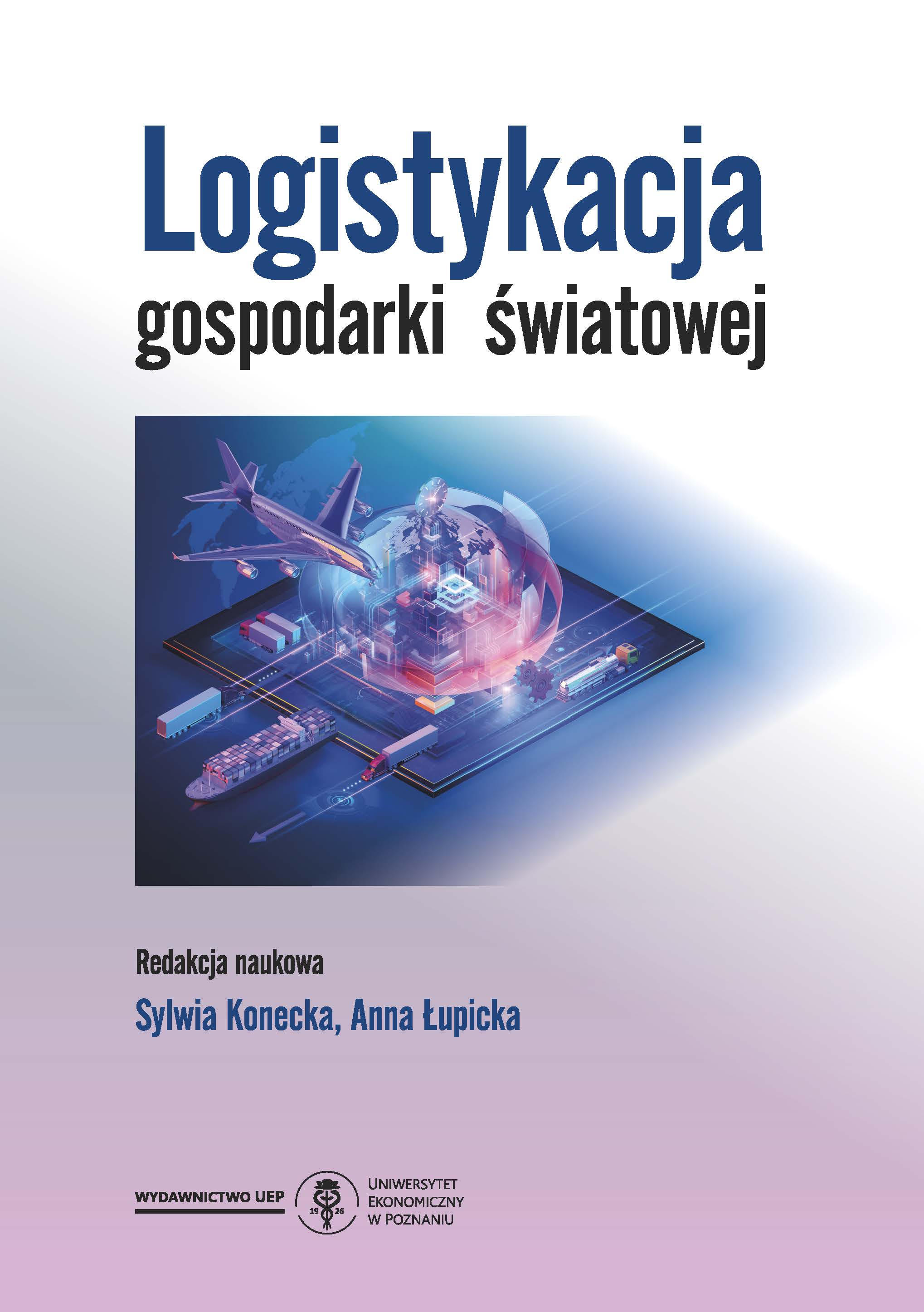
Electronic commerce is a very dynamically developing distribution channel, which in recent years has turned from an additional way of selling products into a major source of sales and reaching customers. Undoubtedly, e-commerce offers many solutions that respond to the diverse needs of consumers. In addition to providing a wide range and full availability of products, issues related to logistics services, especially the implementation of deliveries, are also important. For several years, e-commerce in Poland has been recording clear increases. An increasing number of customers are expressing interest in e-shopping. The purpose of the article is to indicate the role of the growing importance of e-commerce in Poland and the demand it determines for warehouse space and their equipment. The formulated conclusions were supported by the author’s own observations, as well as a literature review and current reports and market analyzes were used.
More...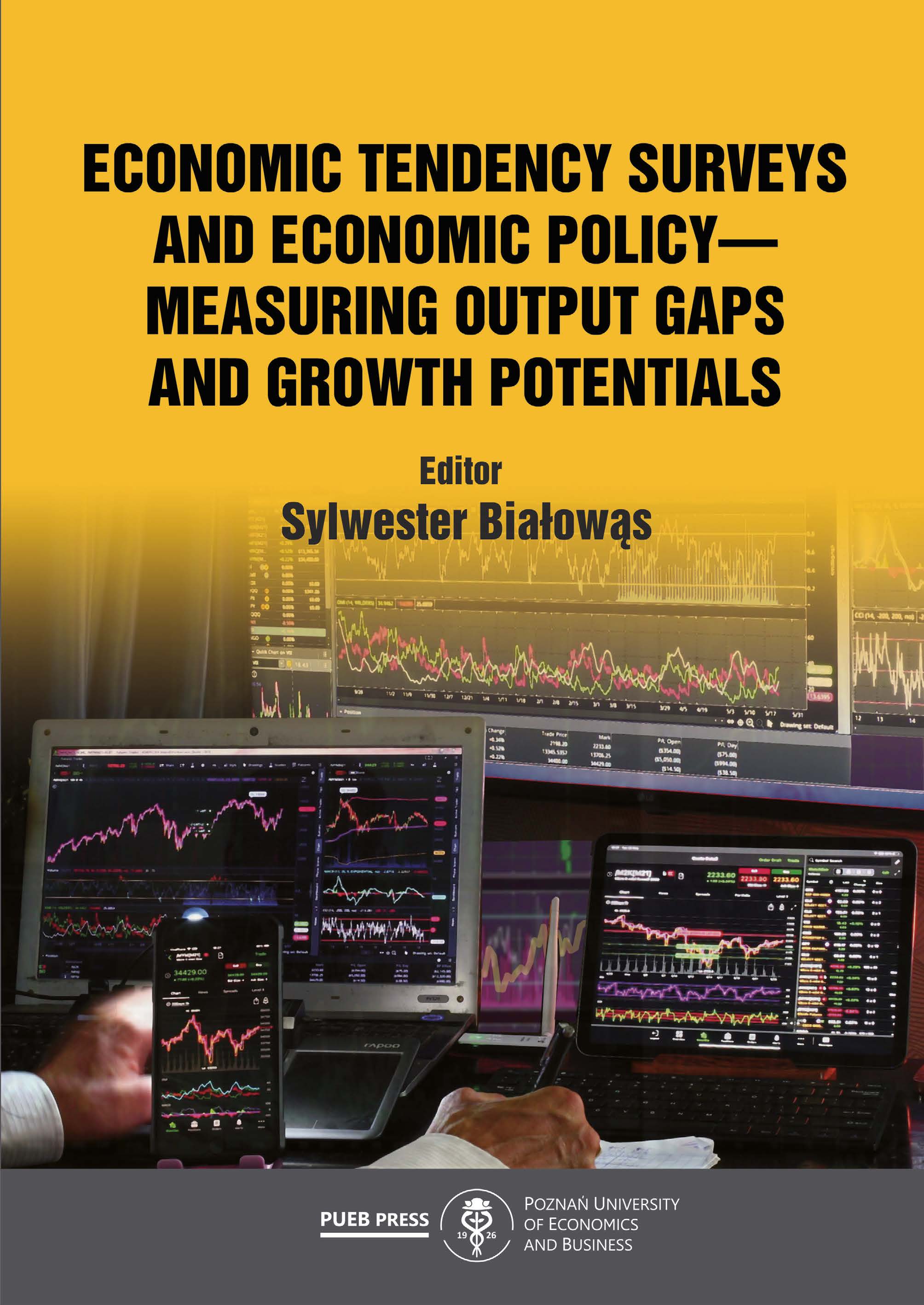
The aim of the article is to analyse the origin, course of inflation and scope of operation concerning the instruments of monetary and fiscal policy applied by the anti-inflation policy, as well as to evaluate their effectiveness for Poland’s economy in the years 2000–2021. To measure the relationship between decisions in the area of stabilisation policy and inflation, the authors carried out an econometric analysis using the dynamic autoregressive model with distributed lags. The parameters of the model confirmed that among the applied tools of monetary and fiscal policies, an anti-inflation nature was found between the monetary policy instruments and prices, and also linking budget expenditures with price level. Changes in budget incomes, according to the obtained results, were not conducive to price stabilisation in our economy. Anti-inflationary policy was dominated by monetary policy instruments. The anti-inflationary significance of fiscal policy has been much smaller since the beginning of the transformation of the Polish economy. Its anti-inflationary role increased in the period of difficulties related to the COVID-19 pandemic, in particular at the time of a strong increase in budget spending in the environment of rising price level.
More...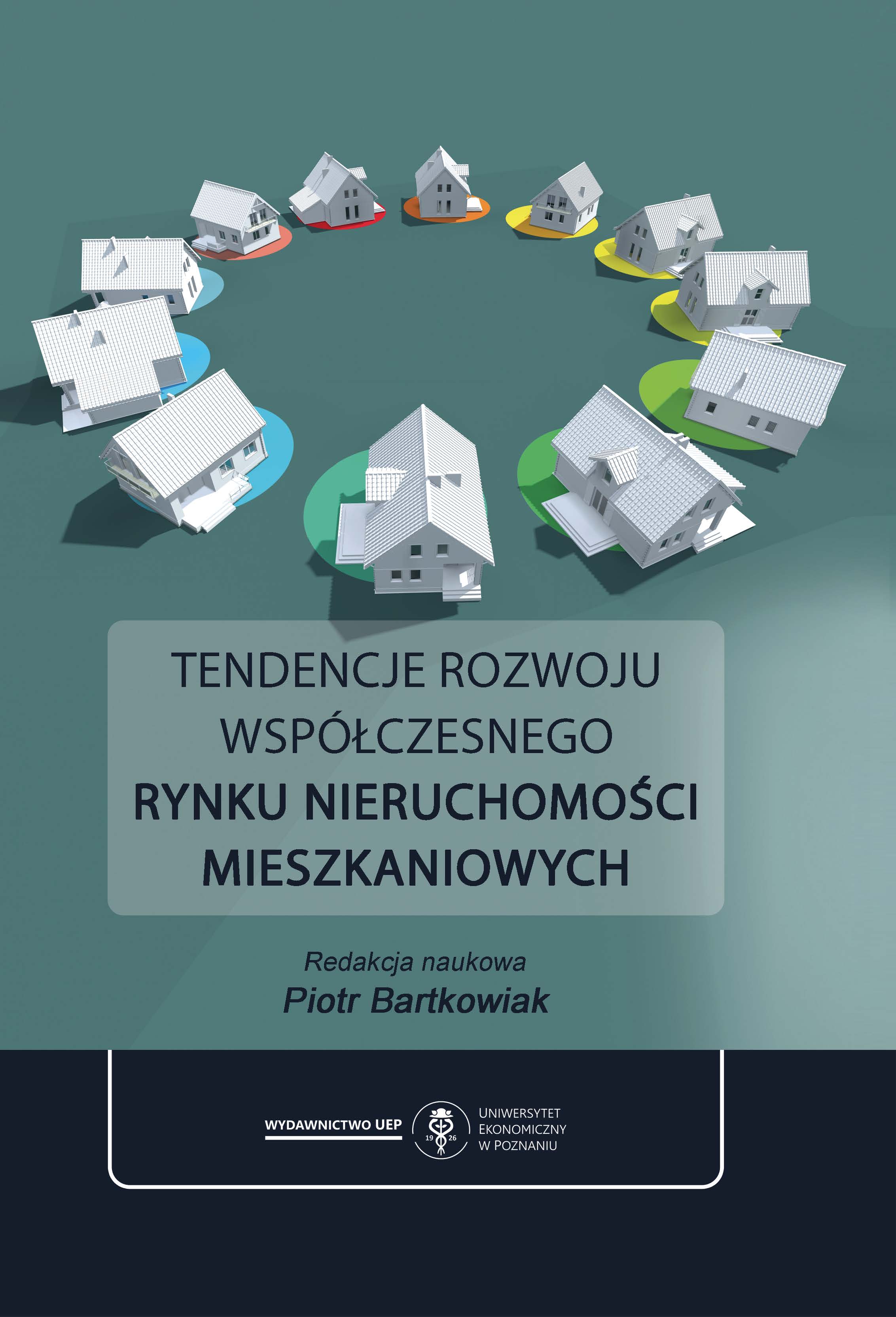
Purpose: The aim of the study is to characterise and interpret the impact of the coronavirus pandemic (COVID-19) as an unexpected stimulus on the participants of the housing market. The research was designed not only to obtain knowledge about contemporary market trends (the cognitive aspect) but also to support market entities in shaping optimised investment and housing decisions (the practical aspect). Design/methodology/approach: The research is based on official statistical data describing transactions on the housing markets of two selected European countries and their cities – Poznań (Poland) and Varna (Bulgaria), in the period between 2018 and 2020. The methodology of comparative analysis has been applied to purpose fully selected case studies. Furthermore, the authors have drawn on the possibilities offered by the analysis of the activity and volatility of transaction prices on housing markets. Findings: The COVID-19 pandemic had a significant, yet short-term impact on the functioning of residential markets in Bulgaria and Poland in 2020 (based on Varna and Poznań). The dissemination of global information concerning the scale of the epidemic has most severely disrupted the activity on both the primary and secondary housing markets in Bulgaria. The secondary housing market in Poland reacted in a similar way, which resulted in a significant instability of the trend. The primary market in Poland turned out to be relatively most resistant to the stimuli related to the pandemic situation. What is common for both analysed countries and cities is a change in the shape of house price indexes in 2020 compared to 2018–2019. Originality and value: The research is a part of the contemporary trend of assessing the impact of atypical factors disrupting market trends. The COVID-19 pandemic disrupted the functioning of housing markets, forcing unprecedented global responses. The example ofthe comparative analysis of the two European countries presented in the article allows for indicating the directions and scale of rapid changes which reflect the process of sudden adaptation of societies to previously unknown conditions. Such analyses, which serve asex-post evaluation to some extent, allow for better preparation of specialists in the field of housing market activities to meet the needs created by unusual stimuli. They also allow for more effective planning of measures to mitigate the effects of market shocks in the sphere of housing.
More...
Purpose: Comparing the values of residential real estate in individual countries is a complex task which requires taking into account a number of factors relating to both the economic situation and the quality of life in a given country. The aim of the study is to present an original and universal method of determining the index that allows to compare the value of residential real estate in cities located in different countries. Design/methodology/approach: In addition to the absolute average prices of a square meter, the approach to determining the above-mentioned index proposed by the authors utilises the analysis of parameters related to the quality of life, the level of public services offered to residents by a given country, as well as economic parameters. Findings: On the basis of the presented methodology, the authors have compared the values of residential real estate in two sample cities with similar population and characteristics, i.e. Poznań in Poland and Denver in the USA. The conducted research shows that the value of residential real estate in Poznań is higher by 6.14% in the city centre and 18% outside the city centre. Originality and value: The proposed method of comparison is original and universal in nature and may be successfully applied both in theoretical research and in practice, e.g.by investors.
More...
The process of globalization and the mobility of human resources pose new tasks and challenges towards the foreign language education in theoretical and practical aspect nowadays. It focuses on the development of competences outside the classroom that help smooth interactions and co-existence between members in multicultural societies. The aim of the present paper is to: 1) Introduce to the reader some of the methods used in teaching Japanese language as a second language in higher education institutions in Japan; 2) Focus on contemporary methods that meet the requirements of the process of globalization.The process of globalization and the mobility of human resources pose new tasks and challenges towards the foreign language education in theoretical and practical aspect nowadays. It focuses on the development of competences outside the classroom that help smooth interactions and co-existence between members in multicultural societies. The aim of the present paper is to: 1) Introduce to the reader some of the methods used in teaching Japanese language as a second language in higher education institutions in Japan; 2) Focus on contemporary methods that meet the requirements of the process of globalization.The process of globalization and the mobility of human resources pose new tasks and challenges towards the foreign language education in theoretical and practical aspect nowadays. It focuses on the development of competences outside the classroom that help smooth interactions and co-existence between members in multicultural societies. The aim of the present paper is to: 1) Introduce to the reader some of the methods used in teaching Japanese language as a second language in higher education institutions in Japan; 2) Focus on contemporary methods that meet the requirements of the process of globalization.The process of globalization and the mobility of human resources pose new tasks and challenges towards the foreign language education in theoretical and practical aspect nowadays. It focuses on the development of competences outside the classroom that help smooth interactions and co-existence between members in multicultural societies. The aim of the present paper is to: 1) Introduce to the reader some of the methods used in teaching Japanese language as a second language in higher education institutions in Japan; 2) Focus on contemporary methods that meet the requirements of the process of globalization.
More...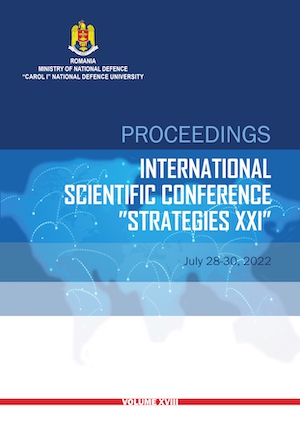
India is one of the two demographic superpowers of the world and one of the most important regional actors with a great deal of potential for playing an important part on the world stage. From a military point of view, India is the fourth most powerful country in the world, according to Global Power, economically speaking, being the fifth most powerful country on a global scale, with growing trends, while geographically speaking, it is the seventh largest country in terms of area, however, it occupies a very advantageous geopolitical position. India is seen as a strong voice within BRICS and the UN against proposals or actions that could harm the interests of any member. It rejected China's proposal to invite Pakistan, Sri Lanka and Mexico into BRICS because India believed that the focus should be on developing the current members rather than inviting other weaker nations and that bringing these nations would drag BRICS down as an alliance and ultimately meet the same fate as the European Union. At the same time, different issues of the regional security ecuation of Asia (South-East Asia – India) – Pacific and complications which have resulted from Russia’s invasion of Ukraine in the ierarchy of the most influencial international actors make India’s standing and role more important indecision-making on both a regional and a global level.
More...